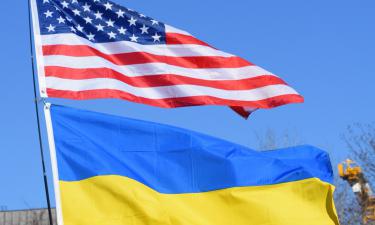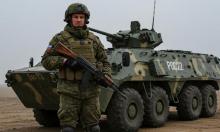Early withdrawal to lead to terrorist attacks in Afghanistan
In a holiday season pep talk to U.S. troops, Defense Secretary Donald H. Rumsfeld said an early withdrawal from Afghanistan or Iraq would lead to new terrorist attacks on Americans at home. Rumsfeld spoke Thursday to several hundred soldiers in a heated tent at this base that serves as the main airfield for U.S. forces in Afghanistan. "If we were to withdraw from Afghanistan precipitously, or from Iraq, the terrorists would attack us first somewhere else and then they would attack us at home, let there be no doubt," he said. Rumsfeld thanked the soldiers for their service.
"The momentous changes here could not have happened without your service," he said. Earlier in Kabul, Afghanistan's capital, Rumsfeld said reducing the number of U.S. troops in Afghanistan will not weaken the campaign against Taliban fighters and al-Qaida terrorists who still threaten this war-torn country.
"We certainly remain committed to our long-term relationship, the strategic partnership between our two countries," Rumsfeld told a news conference Wednesday outside the heavily guarded presidential palace after meeting with President Hamad Karzai.
Rumsfeld spoke a day after he announced that the size of the U.S. force in Afghanistan will shrink from about 19,000 now to about 16,000 by next summer. "We will continue to be focused on rooting out the Taliban and al-Qaida that still exist in causing difficulties for your country," Rumsfeld told Karzai, who stood beside the Pentagon chief at the news conference.
Karzai, noting that Vice President Dick Cheney had visited Kabul on Monday, told reporters that the U.S. government has assured the Afghans that a drawdown of U.S. forces will not undermine joint efforts to improve security.
"The United States has assured us of continued support and assistance on all matters," including security, Karzai said, adding that his own forces are becoming more capable of handling problems on their own. There are about 26,800 soldiers in the Afghan national army and about 55,000 national police. Rumsfeld said the remaining U.S. troops would continue to help train and equip the Afghan security forces and will work with NATO on a variety of security projects.
Rumsfeld told Karzai it was his 10th visit to Afghanistan since the U.S.-led invasion in October 2001 that deposed the Taliban rulers. More than four years later, U.S. forces have captured neither al-Qaida leader Osama bin Laden, who had used Afghanistan as a base before the U.S. invasion, nor Taliban leader Mullah Omar. Rumsfeld told reporters traveling with him that bin Laden, if still alive, is most likely hiding in the Afghan-Pakistani border area. In Pakistan on Wednesday, Rumsfeld toured several U.S. military units that are part of an international humanitarian relief operation for victims of the Oct. 8 earthquake that devastated parts of northwestern Pakistan and the disputed Kashmir region. The quake killed more than 80,000 people and forced more than 3 million from their homes.
At Muzaffarabad, a town near the epicenter of the quake, Rumsfeld visited the 212th Mobile Army Surgical Hospital. The unit's commander, Col. Angel Lugo, told him that more than 200 patients a day are being treated at the facility, which includes an intensive care unit. Lugo said that about one-third of the patients are suffering directly from quake-related injuries, reports the AP. I.L.
Subscribe to Pravda.Ru Telegram channel, Facebook, RSS!





